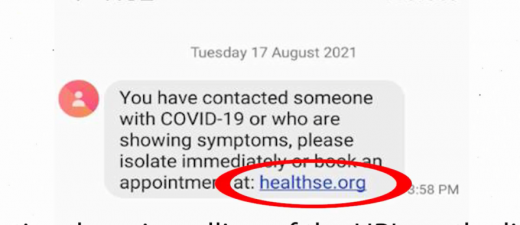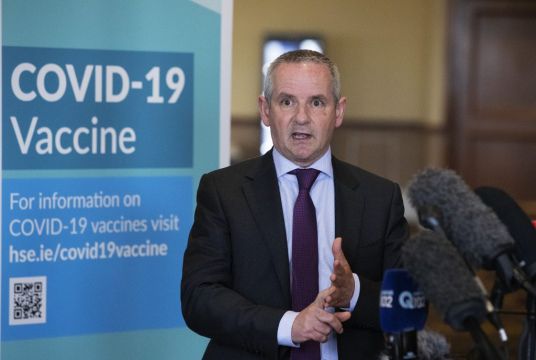The HSE hopes to retain its vaccination infrastructure until at least the end of 2021, to facilitate a potential booster campaign, chief executive Paul Reid has said.
About 5,000 staff are employed to work in more than 40 vaccination centres nationwide, delivering more than 6.5 million Covid-19 jabs to date.
The National Immunisation Advisory Committee (Niac) is currently considering whether booster vaccines will need to be administered in the autumn, to provide extra immunity.
HSE boss Paul Reid said the “most likely scenario” is that they will be given first to those with underlying conditions and then to “prioritised groups”, which could include the elderly and healthcare workers.
He said: “We need to have pandemic capacity and capability.
“Nobody knows what will emerge, firstly, in terms of boosters for vaccinating the population. Secondly, with variants, which we all hope never come along but may come along.
You can book a #COVID19 test online for a number of test centres across the country. Just log on to our system and pick a time slot up to the end of the following day. Learn more here: https://t.co/EQ7SFidBxa pic.twitter.com/n3HgnncDth
— HSE Ireland (@HSELive) August 20, 2021
“We will be looking to attain an element of our infrastructure, which is our vaccination centres.
“We have 5,000 members of a workforce involved in the vaccination process.
“We don’t see it all being fixed for the future. But we will be looking to retain, certainly into the end of 2021, and then accommodating whatever recommendations come from Niac in relation to booster campaigns.”
The HSE is currently planning for a number of scenarios that could emerge from the Niac advice, including that booster jabs could be given in conjunction with the flu vaccine.
“That may be a combination of GPs and pharmacies, but also some vaccination centres” Mr Reid told RTÉ’s News at One.
“The evidence will emerge and Niac will make those recommendations, like they always have, quite well and thoroughly.
6.5M vaccines now administered here. Just on 84% of adults fully vaccinated & over 90% partially. The vaccines continue to reduce illness, hospitalisation, admittance to ICU & mortality. But please continue to take caution as the virus is still hugely prevalent. @HSELive
— Paul Reid (@paulreiddublin) August 19, 2021
“But we’ve looked at the scenarios that may emerge. The most likely scenario that may emerge in the early term is immunocompromised people needing a booster. And following that, prioritised groups. ”
Mr Reid said it was unlikely that the booster campaign would be hindered by the delivery and supply issues that blighted the early part of the vaccination rollout, saying “supplies are strong”.
“We really are at a different phase now in terms of supplies,” he said.
“This week alone we’ve received 540,000 mRNA vaccines in the country.
Which #COVID19 vaccine is best? The one that you're offered.
The #COVID19 Vaccination Programme is one of the most important public health strategies of our time.
"When my turn comes, I'll be very happy to take any one of these four vaccines." @CMOIreland pic.twitter.com/r9BZb99VDE— Department of Health (@roinnslainte) May 1, 2021
“Part of that delivery was part of the 700,000 Romanian vaccines that have been allocated to this country.
“And we expect a similar delivery next month, another 540,000.”

Elsewhere, Israel has already begun its booster campaign, with prime minister Naftali Bennett receiving his shot on Friday.
Over-40s started receiving the booster jabs amid a spike in infections.
However, the World Health Organisation (WHO) had criticised plans to administer booster shots, arguing that the supplies should go to developing countries instead.







